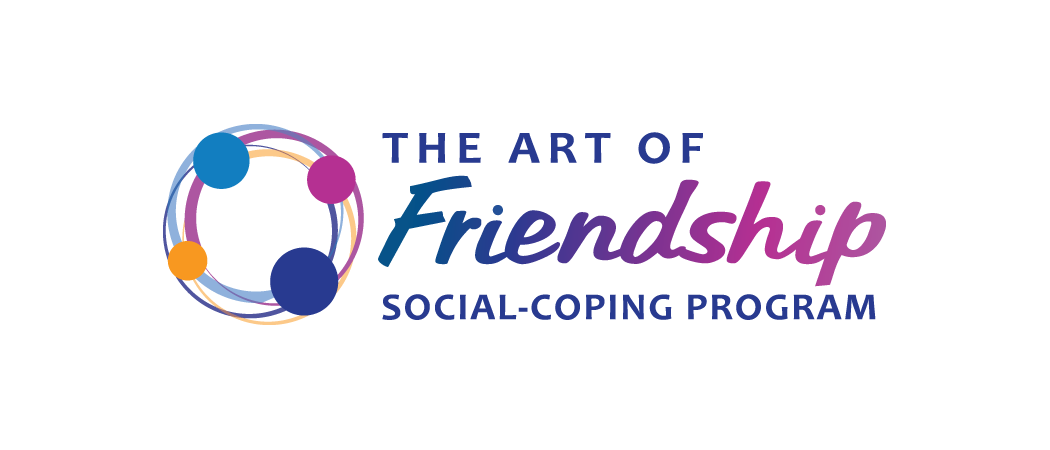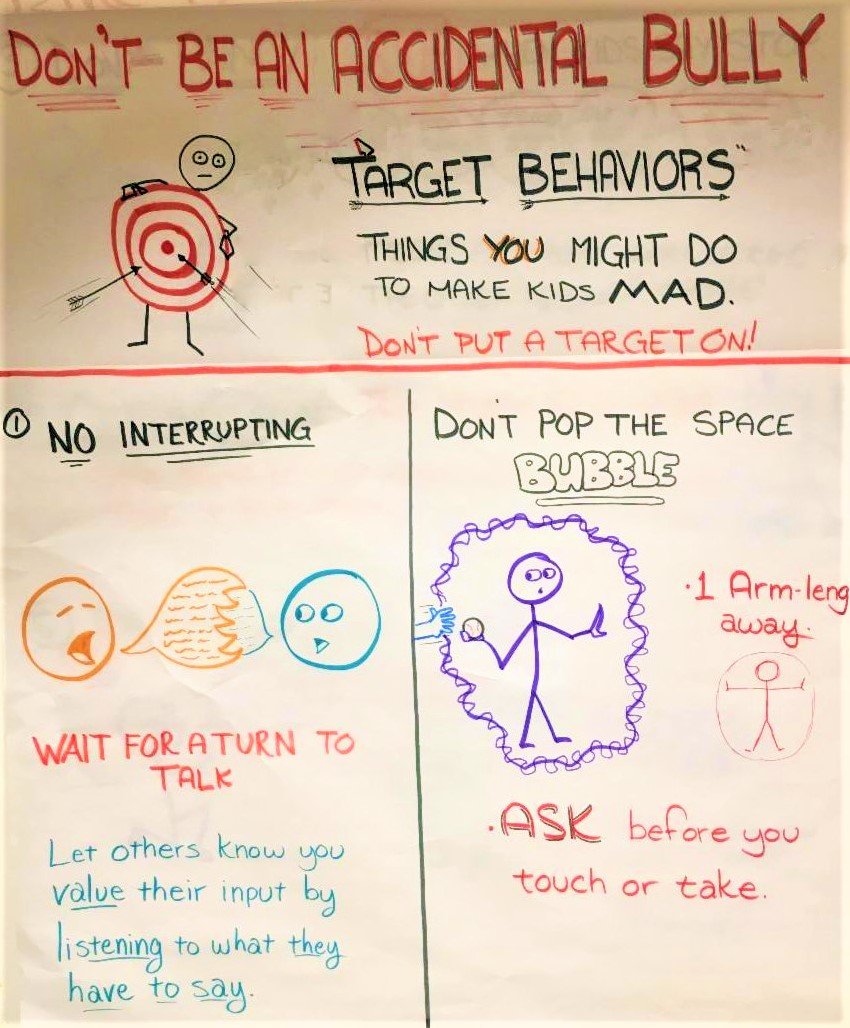Art of Friendship Social-Coping Tip #17: Don’t Annoy and Place A Target On Your Own Back
Don’t Become a Target: The Accidental Bully
We go out of the way not to make children feel as though they ever "deserve" to be bullied or picked on. However, in numerous conversations, many kids reveal they don’t recognize their role in the interaction. These children children report that peers are consistently “mean”, but don’t realize they had an agitating role to play in their mate’s reaction.
It is important that we remind your child of the core lesson in social cognition, “ACTION-REACTION: THE TEAM FOR FUN GETS GOOD REACTIONS”. The law of social cause-and-effect holds that, in general, when you engage in positive social behaviors, you are likely to get positive reactions. The opposite is also true: if you perform negative or annoying behaviors, you will likely attract negative responses. If you don’t realize you are bothering people and don’t stop, you may unwittingly and accidentally become a nudge or even an ACCIDENTAL BULLY. As a nice kid, you don’t want to attract meanness from others with your behaviors.
How does this happen? When you misread social cues or misinterpret the situation, you may say or do things that don’t quite fit the situation. This can make peers may become confused, uncomfortable, or mad. While you get your mate’s focused attention, it’s negative attention. Think of an archery or riflery TARGET. It has concentric rings leading to the center bullseye. People aim arrows or guns or axes at TARGETS.
Certain types of behaviors might put a SOCIAL TARGET on your back and cause your peers to take aim at you. If they get annoyed enough, or over time, their frustration may build up to the point they want revenge. Their anger may make them say mean things or tease or exclude you. You may feel as though you are being BULLIED. But in this case, your peer wasn’t intending to TARGET you, it was your annoying behavior that caused the peers to get frustrated and aim anger at your TARGET. You became an ACCIDENTAL BULLY. Oh no!
However, it is possible to decrease the likelihood that you will engage in TARGET BEHAVIORS if you learn these common missteps to avoid. The most important TARGET BEHAVIORS to avoid are:
· DON'T ANNOY. Stop when peers say, "STOP!". Peers want to get revenge when you bother, irritate, or harass them.
· DON'T POP THE SPACE BUBBLE. Respect personal space and don't touch peers without permission.
· NO INTERRUPTING - WAIT YOUR TURN TO TALK (a.k.a.) DON'T CHEW UP PEERS' TURN TO TALK.
We know you are excited to share your thought. Don’t put a TARGET ON; Wait for a turn to talk by listening carefully for your partner to pause and take a breath. That’s your opening to say something. If you are a LONG-TALKER, people get very bored and irritated when you talk nonstop. Use the RULE OF 3 and restrict yourself to three details on each topic.
· DON'T DO OUTRAGEOUS THINGS TO GET ATTENTION. Don’t be the class clown who is always on, being silly all the time, being violent, saying gross-out things, or calling kids names. Kids get tired of this act eventually, and you’ll wind up wearing a TARGET for their frustration. Instead, use conversation to connect and get attention. Demonstrate care and interest in others. Ask conversation questions to get friends talking or playing. These are positive ways to get attention.
· DON'T BE THE RULE POLICE OR KID CORRECTOR. Correcting others annoys other kids big-time. If you do it too much, your peers may get mad and want revenge! You come off as an insufferable know-it-all. Instead, hold your corrections inside your head, control your mouth, and tell your parents when you get home. ("You wouldn't believe what Johnny did today...") Take the TARGET off yourself and let teachers or other grown-ups do their job to correct kids!
· DON'T USE SELF DEFEATING BODY LANGUAGE. Slouching, making minimal or no eye contact, or isolating in corners may make bullies think you are a vulnerable target. Instead, practice confident body language: sit up, walk with head held high, scan the room with your eyes. Watch the Ted Talk about Power Poses: https://www.ted.com/talks/amy_cuddy_your_body_language_may_shape_who_you_are?language=en
Onward and upward! --Mike


